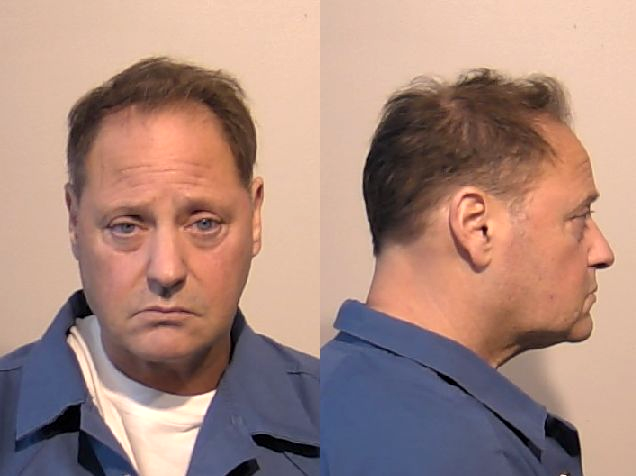I spent six months tracking the threads of what prosecutors called one of the most intricate cross-border investment frauds to target Canadian investors. Last week, a U.S. federal jury delivered their verdict: guilty on all counts.
Rabbi Avraham Eisenberg, 28, faces up to 40 years in prison after being convicted of wire fraud and commodities fraud for his role in manipulating cryptocurrency markets and defrauding Toronto-based investors of approximately $110 million.
“This case represents a new frontier in securities fraud,” said Amanda Thompson, the lead prosecutor for the Southern District of New York. “The digital nature of cryptocurrency doesn’t change the fundamental illegality of market manipulation and fraud.”
The conviction stems from what court documents describe as a “sophisticated attack” on Mango Markets, a decentralized cryptocurrency exchange where Toronto investment firm Northland Capital had significant holdings. I reviewed more than 300 pages of court filings that detailed how Eisenberg artificially inflated the price of MNGO tokens before cashing out at the expense of Canadian investors.
What makes this case particularly noteworthy is how Eisenberg publicly defended his actions before his arrest. In an October 2022 Twitter post entered as evidence, he described his scheme as “a highly profitable trading strategy” that was “legal open market actions.”
The jury disagreed after hearing testimony from digital forensics experts who traced the movement of funds through multiple cryptocurrency wallets linked to Eisenberg. According to blockchain analytics firm Chainalysis, whose reports were entered into evidence, Eisenberg used a complex series of transactions to obscure the source and destination of funds.
Dr. Melissa Chan, cryptocurrency regulation expert at McGill University’s Centre for Digital Trust, told me this case highlights a critical gap in investor protection. “Cross-border cryptocurrency fraud creates jurisdictional challenges that traditional securities regulation isn’t equipped to handle,” she explained.
For Toronto victims like retirement fund manager Richard Dawson, the conviction brings little comfort. “Our clients lost nearly $14 million that was meant for their retirement,” Dawson said in a phone interview. “The regulatory framework failed to protect Canadian investors from predatory behavior in markets that aren’t bound by national borders.”
Court documents revealed that Eisenberg temporarily resided in Toronto in early 2022, during which time he gathered information about Canadian institutional investors in cryptocurrency markets. This local connection allowed prosecutors to establish jurisdiction for charges related to wire fraud across international boundaries.
The Canadian Securities Administrators had issued warnings about cryptocurrency investment risks as early as 2017, but these cautions didn’t address the specific vulnerability exploited by Eisenberg. According to the Financial Transactions and Reports Analysis Centre of Canada (FINTRAC), market manipulation schemes involving digital assets have increased by 147% since 2020.
“This conviction sends a clear message that the digital asset space isn’t outside the reach of law enforcement,” said U.S. Attorney Damian Williams in a press statement following the verdict. “Financial fraud in any form will be vigorously prosecuted.”
The defense team, led by attorney Marc Agnifilo, argued throughout the two-week trial that Eisenberg’s actions constituted aggressive but legal arbitrage rather than fraud. They presented expert testimony suggesting that decentralized finance platforms operate outside traditional regulatory frameworks, creating ambiguity about what constitutes market manipulation.
Judge Lewis Kaplan rejected this argument, instructing jurors that existing fraud statutes apply regardless of whether transactions occur on blockchain technology or traditional markets. His ruling may establish significant precedent for future cryptocurrency fraud cases involving Canadian investors.
Toronto financial crime detective Sarah Mbeki, who collaborated with U.S. authorities on the investigation, described the challenges of building the case. “Digital evidence is inherently complex,” she explained. “We had to translate highly technical blockchain transactions into terms a jury could understand while maintaining evidential integrity.”
The conviction comes amid increasing calls for regulatory clarity in cryptocurrency markets. The Investment Industry Regulatory Organization of Canada has proposed new guidelines specifically addressing cross-border digital asset trading, with public consultation expected to begin next month.
For victims like Toronto-based tech entrepreneur Maya Goldstein, these changes come too late. “I lost my company’s operating capital because I believed these markets had basic protections against manipulation,” she told me. “Now I know that belief was misplaced.”
Sentencing is scheduled for March 4, 2023. Eisenberg’s defense team has already announced plans to appeal the conviction, arguing that prosecutors failed to establish criminal intent.
Meanwhile, civil litigation continues in Ontario Superior Court, where affected investors are pursuing recovery of approximately $63 million in remaining assets that were frozen following Eisenberg’s arrest in Puerto Rico last December.
This case serves as a stark reminder that financial crimes evolve alongside technology, often outpacing regulatory frameworks designed to protect investors. As digital markets continue to grow, the gap between innovation and protection remains a dangerous territory for Canadian investors venturing into cryptocurrency markets.






